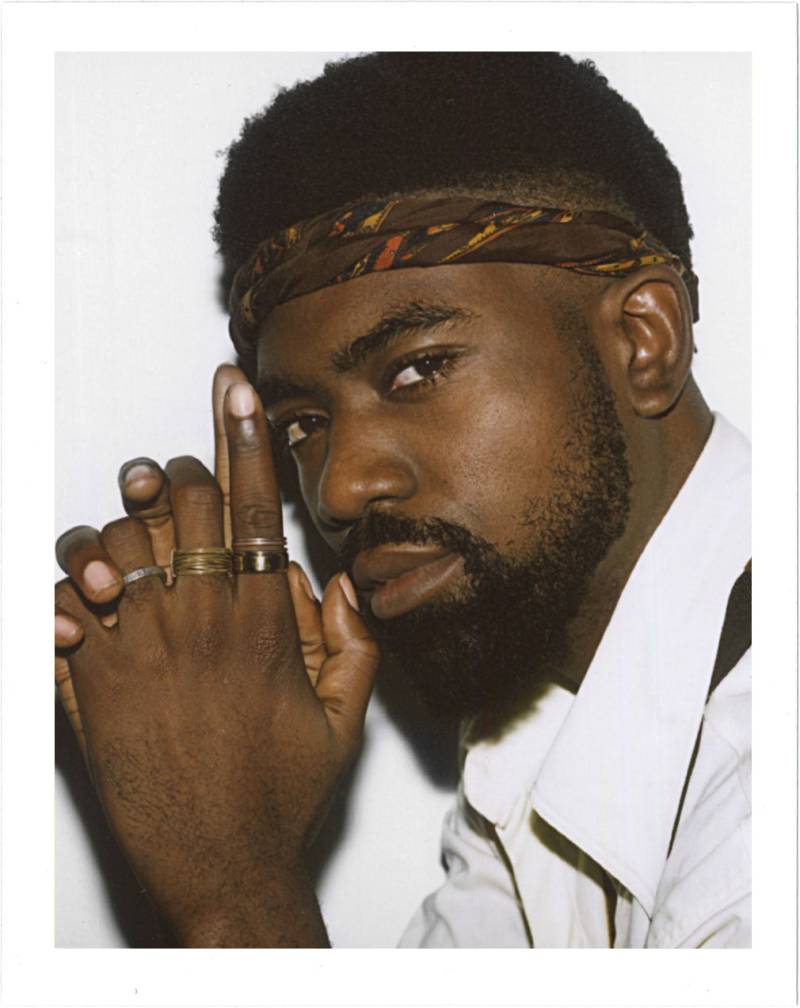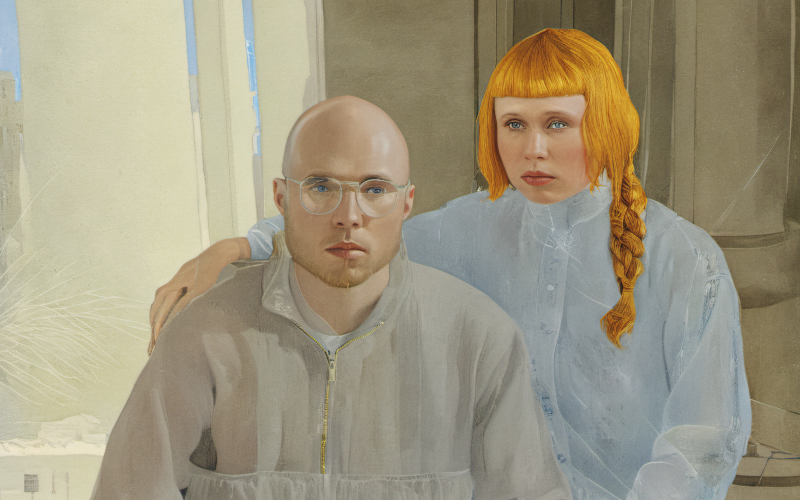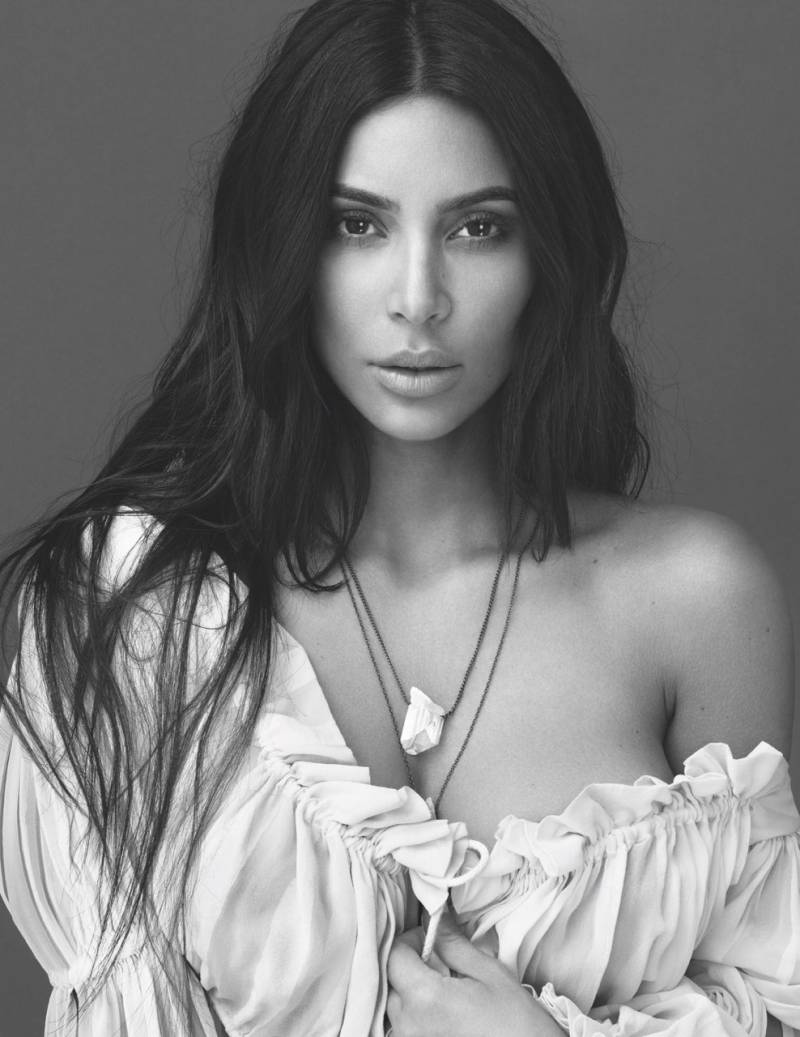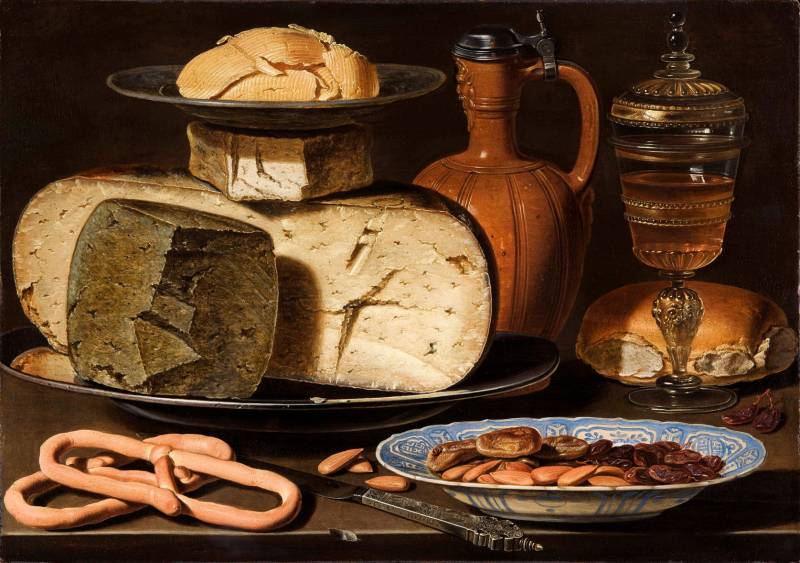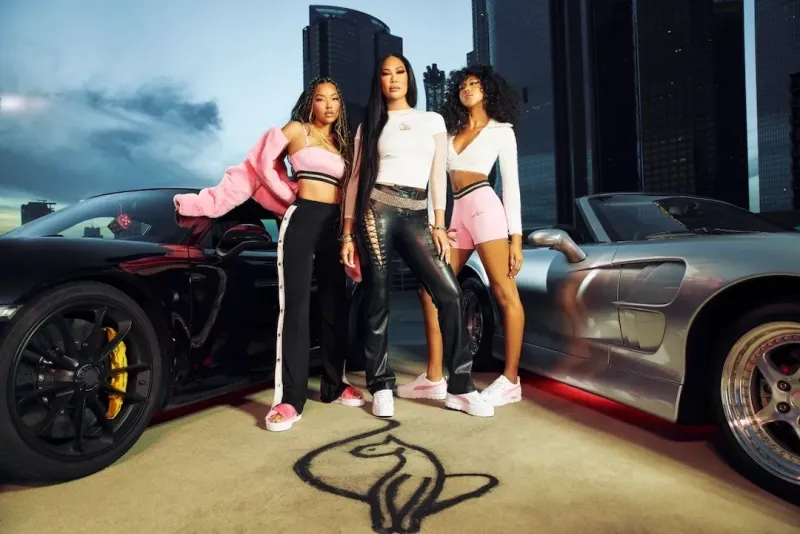Before the Lagos-born stylist dressed Maluma for a world tour or collaborated with Balmain on Jeremy Pope's epic Karl-themed Met Gala long cape, her college friends would ask her for wardrobe advice. Mozie said that her parents are always careful about what they wear, how they wear it, how they dress and how they look,never afraid to be expressive through style " he says. "I learned organically as I was growing up, and fell into my own sense of personality as I was starting to know what my style was." Mozie's family moved from Nigeria to the United States (first to Los Angeles, then to Houston) when he was in college. At the age of 17, he moved to New York and soon started a clothing line with musician Quinn Aston."That was my baptism into the fashion world," he says. During his career and his various roles in the company (in addition to planning and design, he also works as an editor), one of Mozie's tasks is to change the news about fashion Africa and show that clothes made in the continent can be. as luxurious and refined as those made in France or Italy. Ahead, he talks about how it works for him, the most important business lesson he's learned so far, where he put his creative talents to good use next, and more. Read on for the highlights of our discussion.
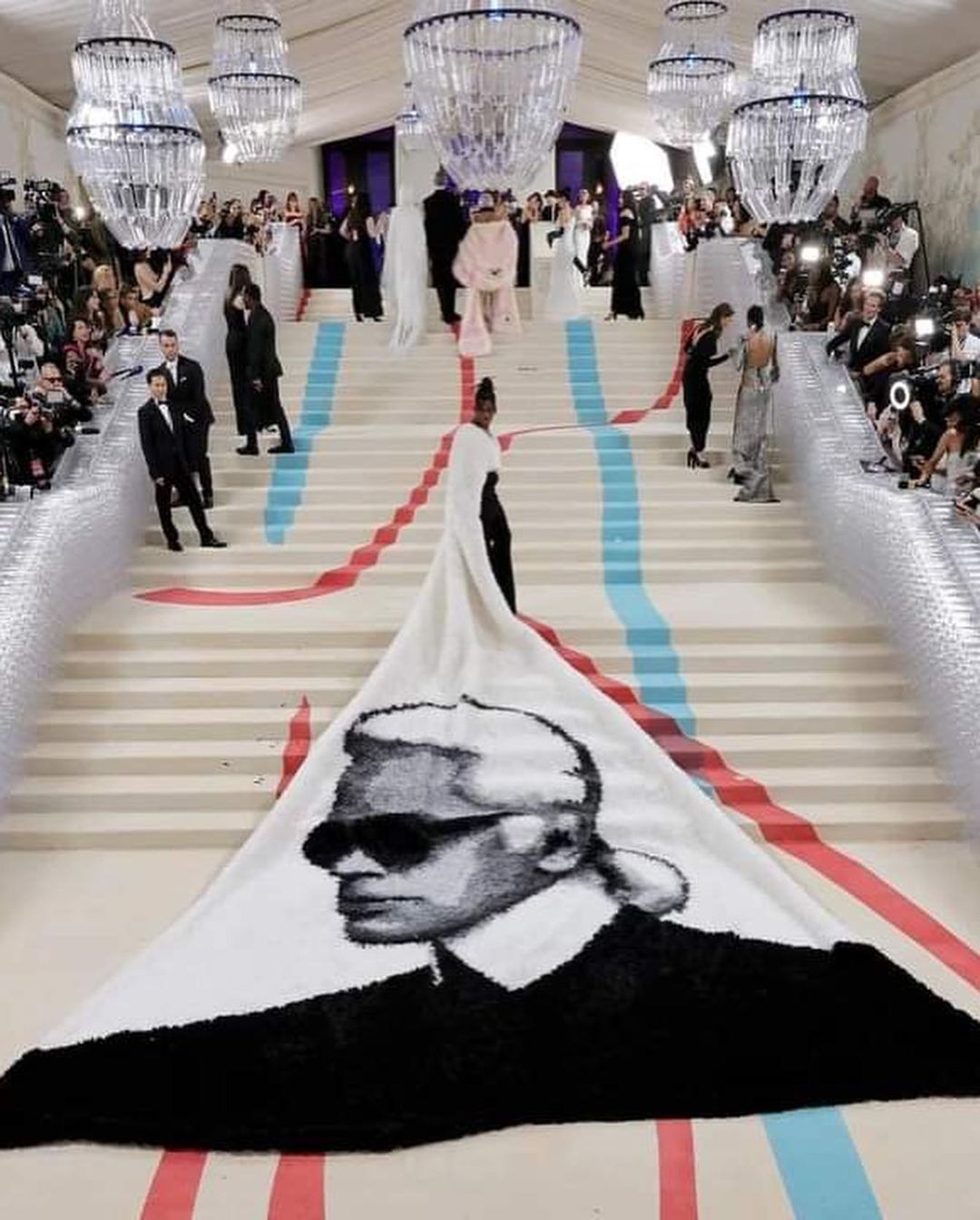
What initially brought you to New York, and how did the city influence your relationship to fashion?
New York was somewhere I always knew that I would come back to and live. When I was 14, I went out there with some friends for spring break, and I was culture shocked in the best way. I was able to really see what it meant to live freely and uniquely, without as much judgment. At the time, I was living in Houston, and that was really a culture shock [coming from Nigeria] — not for the best. I felt like I had to suppress a lot of my creativity in school. The kids were a lot more conservative, as opposed to my liberal views and liberal way of expressing myself through style and fashion.Being in Houston, not only was I one of the very, very few Black people at my school, but [I was one of the few people who was] also African. I did a lot of soul-searching as a kid, and I feel like those experiences allowed me to get an understanding of who I was. I had to decide whether I would let my differences be an insecurity or be an advantage, and I chose advantage. I chose to be confident in my differences, in my culture, in my heritage.
What was helpful in that soul searching?
The most helpful thing during my journey of soul searching — which never ends, by the way — was my family: my mom, my dad, my siblings. Their support gave me the permission to be myself in public. It gave me the confidence to know that, if my foundation is proud of me and my foundation accepts me, I'll be fine. Whenever things would happen at school, like bullying or people not understanding me, what would ground me would be just remembering my family. At the end of the day, I have 50 cousins — who needs friends from school anyway? I moved to New York a year before starting at St. John's University, to get a good transition. The first thing I did was get an internship at Virgin Records, interning for the head of marketing. That allowed me to get my first education in the music and entertainment industries. I had a chance to understand how the record world works — how they discovered, developed, produced artists — and to work on creative packages, rollouts and marketing plans. One common denominator between everybody in the office was they were always noticing my style and what I wore. Eventually, I started working with the creative director, helping them with the style and images for artists. That was my first experience in fashion styling.From there, I got an internship with an amazing stylist named Jason Rembert. He's still an icon today. He gave me my first real knowledge and education in what styling was, to really understand the ins and outs — how to get a client, reach out to designers, build networks. I'm really eternally grateful to Jason for that. From Jason, I landed my first client: Dawn Richard. She was a member of Danity Kane and Diddy's Dirty Money. This was at 18 years old. She brought me in, and I started working with Dirty Money, too. From Dawn, I got Teyana Taylor, then Kelis, then Omarion. By my second year in New York, I was pretty much styling full-time and going to school full-time. I did that for about three years.
You eventually left St. John's and New York City. What inspired that move?
I went to Paris for about a year. Paris was where I got my knowledge and experience in the high-fashion space. I became a fashion editor of this magazine called Ghubar and started producing, creative directing, booking talent and styling shoots. With that, I got a chance to build a network of top designers in Paris, Milan and London and really create personal relationships with them that would end up propelling my career. After Paris, I moved to L.A., and I swore it was going to be a smooth, easy transition — but it wasn't. I had to relearn the market all over again, and understand that the industry in L.A. is completely different from anywhere else in the world. Once I understood that, I booked Chris Brown [as a client], then I started working with Justin Bieber, Travis Scott, the list goes on.
Were there other challenges when you relocated to L.A.?
Besides relearning the market, I would say that L.A. is a place where who likes you goes a very long way, where it requires a lot more than hard work and talent to succeed. It requires energy and network, as opposed to New York, where I felt like hard work, talent, work ethic, determination and confidence goes a long way. In LA, you may have never even worked in this job or career your entire life, but your mom knows the CEO or you met a casting director at the grocery store — it's a very magical place, in that sense. I feel like once you're mentally ready and you've stopped feeling desperation, timing, rush and aggression, the universe starts to magically move things around to really serve what your destiny and journey is. That's what I felt for me, at least. The first year in L.A., the biggest thing that held me back was my expectations. Obviously, you do your best and put your best work out, but at the end of the day, the energy and timing is out of your control. Once you know that you've done the most you can do, just let it go. There's a certain level of ease and comfort that people appreciate. I found that people will hire you and work with you because they appreciate the energy that you bring to the room.
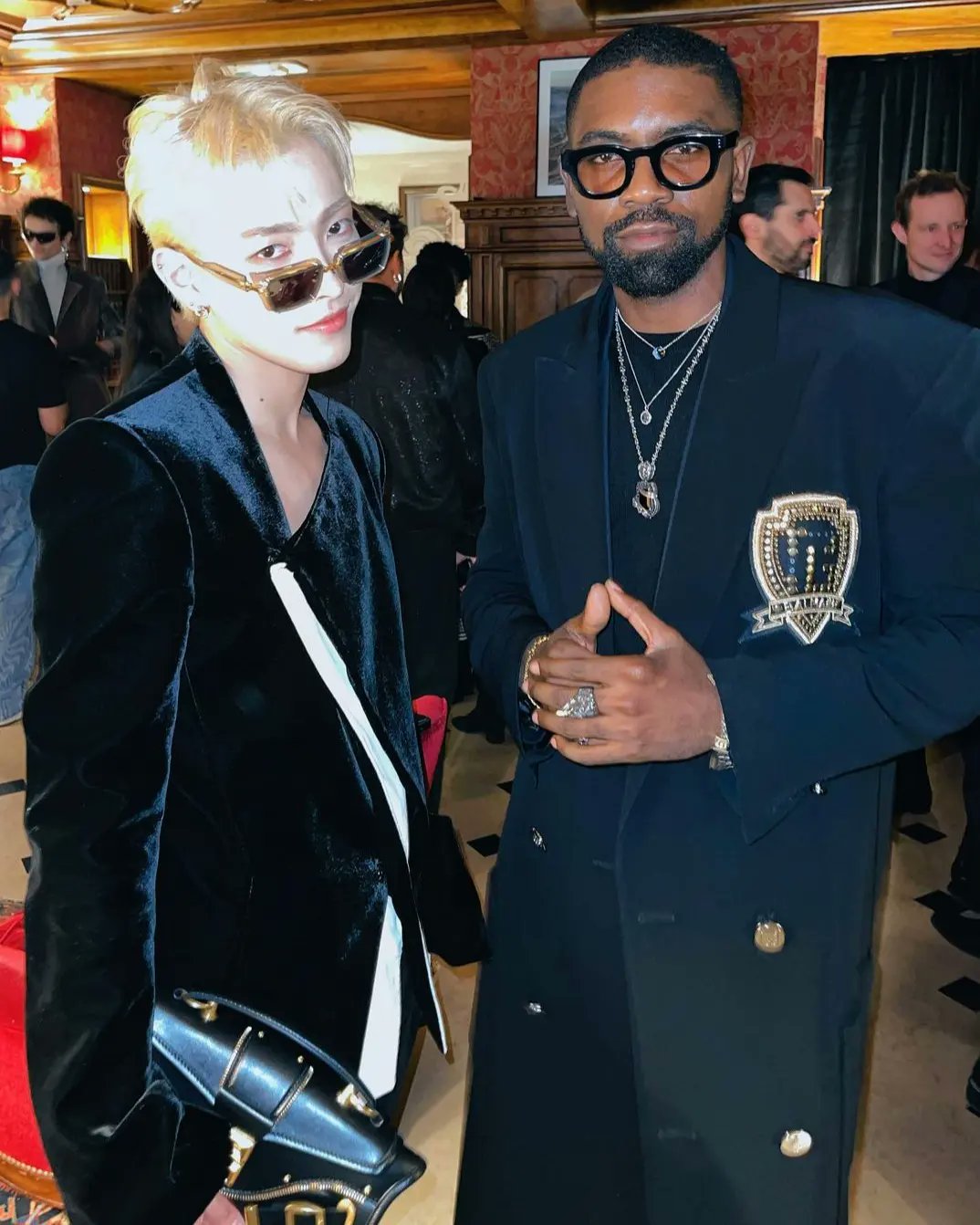
Has that lesson about shifting your own expectations stuck with you since?
Definitely, and it pretty much lives with me. My expectations aren't aligned with the universe or with reality — I've had to realize that they're simply what I want and hope, not always what I need. I've been able to put myself in a space where I honestly trust God and the world enough to know that whatever is meant to me and written for me will come. We're given dreams, visions and ideas all the time. We're supposed to put them into fruition and activate them. However, while doing that, we also need to have a level of humility and trust in the universe and in God to know that that vision was given to you. There are a lot of people I know who have found themselves in lost positions or having mental breakdowns because they allowed their expectations to get the best of them. When they hold so much value and weight in what they expect and don't achieve it, they feel defeated.
What serves as inspiration for your aesthetic?
I find that the way I dress is a direct reflection of how I feel and my experiences. The thing that I always look for when I'm getting dressed is how comfortable it is. I spent a lot of my early days in New York just wearing everything — the tightest shoes just because they look nice or jeans that end up hurting by the end of the day just because they look good. I dress for comfort; the style and the fashion comes next.I apply the same idea to my clients. I'm not the kind of person that's like, 'No pain, no gain.' If it hurts, we're not doing it. If you're insecure or questioning your appearance, it only leaves room for other people to question, too. If you walk in somewhere like, 'This is it, this is what I chose, what I love. I feel good' — no one's gonna be able to say anything to you. That's why people like Rihanna, Grace Jones, Michael Jackson and Lady Gaga are such fashion icons and inspirations. They dress for themselves.
How does your passion for design come into play in your career?
I'm always designing. I own a factory in Lagos, where we house about 17-to-20 tailors and seamstresses. We're always producing and creating. I work with different costume designers around the world, including Ruth E. Carter. I'm more passionate about designing than anything. I think what I do is mostly all design. Whether I'm designing clothing, artwork, furniture, someone's aesthetic or career, it's all a sense of design for me. That's where my passion lies. If not the immediate next chapter, the next two chapters [will be about design.] It's definitely coming. I've been designing clothes since I was maybe 13, and I still do it to this day, more on a boutique, custom, made-to-order atelier level. But I know that my dream is to allow the world to be able to have a piece of my art, of my work. I want to integrate technology and fashion as much as possible. My idea really is to be able to make in Africa, in Nigeria, and have it be accessible to the world, where you can go to a Bergdorf, Neiman Marcus or a Saks and see clothing, dresses, gowns, suits, casual wear that's made in Lagos. That's something that's very big on my bucket list. I feel like the entire continent is under-recognized in terms of the ability of talent, the designers, artists.
What advice would you give someone today who wants to become a stylist?
I don't like to give advice, but I like to share my experiences and how I handled things for people to take that and interpret it for themselves. When I was younger, I wish somebody would've told me to be more unapologetic with my individualism. There's a lot of pressure to look at the runways, follow trends and see what's going on. As a top stylist, what sets you apart, like any other artist, is your individualism, your uniqueness, what you bring to the table. And the only way of understanding what you bring to the table is by understanding yourself. It usually has to do with your culture, your background, your environment. Let your experiences play a role in the way you express yourself. Don't be afraid of allowing your journey to be expressed in your art, because that's what's going to make it unique.
What's the best advice you've ever been given?
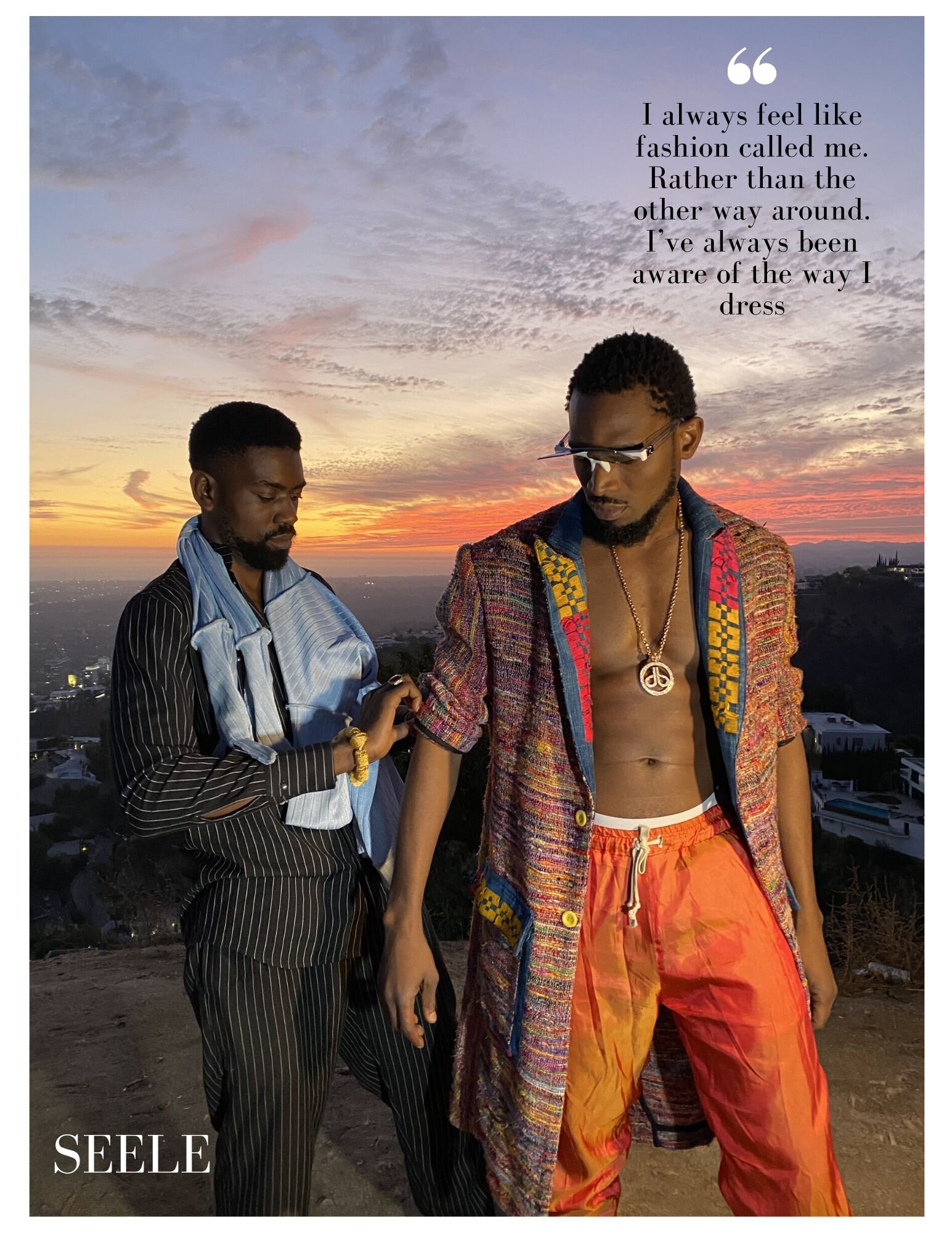
I remember I was speaking to Quincy Jones a few years ago about the history of Black Americans, African Americans and Africans. He was expressing that the more unapologetic you are about knowing your history, the more powerful you are — basically that people who are lost are people that have no history or knowledge of themselves, that our power is in knowing where we came from and the history of how we got here. That has stuck to me so deep, because I really allow my African roots, my ancestors, the journey both ancient and current, to really define how I see myself.
What would you say to the younger version of yourself back in Houston?
Take more risks. Be vocal. The only things that I regret in my life or I feel like I could have done differently are times when I didn't speak up or where I didn't go for it. I sometimes allow fear or shyness to stop me from reaching out to that client or saying how I felt or making that move. If I knew earlier to not allow myself to hold myself back, I could even be a lot further now. Obviously I'm where I'm meant to be, but if I could have changed anything, it would be to be bolder in my actions.
What are you working on now?
My current endeavor and passion is in filmmaking. I've been developing my debut feature film for the past five years now. I'm excited because it's a career and a platform that's going to allow me to put all my network and talent and knowledge in one project: the fashion, the visuals, the lighting, the cinematography, the writing. It's such a beautiful process that I can't wait to share. We put a pause on meetings and pitches until the writer's strike is done, in solidarity. But it's going beyond my wildest dreams. I have a strong team. The film is a cross-continental picture that's going to show the beauty of both being Black in America and being Black in Africa. We're trying to create a bridge between African culture and African American culture using a romantic comedy.
" he says. "I learned organically as I was growing up, and fell into my own sense of personality as I was starting to know what my style was." "That was my baptism into the fashion world," he says.
Courtesy - Andrea Bossi
